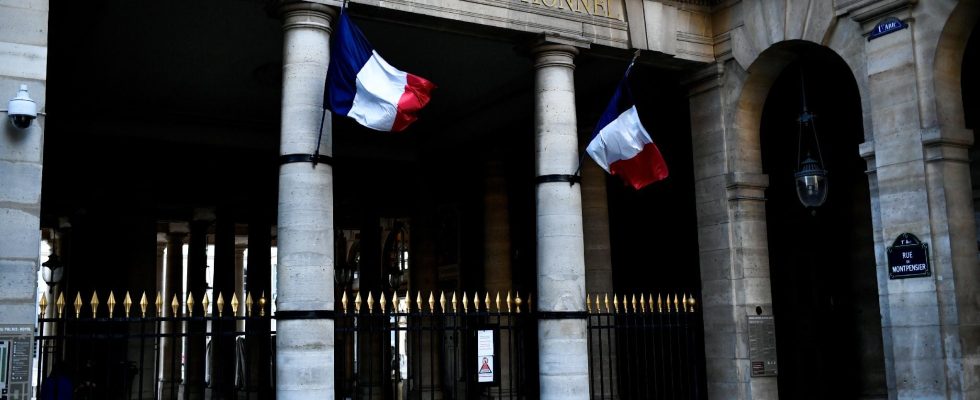Will the Sages upset the election? Three appeals were filed on Tuesday, June 11, before the Constitutional Council against the decree organizing the ballot for the legislative elections, including that of La France Insoumise which protests “against the freezing of the electoral lists”.
“Emmanuel Macron thus deprives millions of people of their right to vote,” denounces Jean-Luc Mélenchon’s party in a press release on Twitter. In 2022, the data from INSEE estimated that 2.9 million people were not registered to vote.
Indeed, people who were not registered on the electoral lists on Monday June 10 will not be able to vote during the early legislative elections of June 30 and July 7, the Ministry of the Interior indicated on Tuesday June 11. Note that, according to electoral law, a person can vote if they are registered before the sixth Friday preceding the first round of the election.. On the other hand, young people who will be of age by June 29 inclusive, the day before the first round, will indeed be able to participate in the vote. This exemption, which was clarified by the Ministry of the Interior, initially indicated the opposite.
The other appeals also denounce a too hasty vote. “What is being criticized are delay issues which will make the elections too short,” explains Jean-Baptiste Soufron, member of the Association for the Defense of Constitutional Freedoms (Adelico), bringing the first appeal. The law stipulates that the dissolution of the National Assembly and the first round of voting must be separated by a minimum of 20 days. As it stands, the first round must be held on June 30 in mainland France. The dissolution was effective on June 9. However, early voting is planned in certain constituencies, particularly overseas and abroad. These ballots would therefore not respect the 20 day deadline. “The choice to organize the first round on Sunday June 30 seriously undermines the sincerity of the vote,” establishes Adelico’s appeal.
“We would have to add a few days to the planned deadline”
The applicants also fear that the short campaign will be too difficult for the candidates to organize. Setting up electoral propaganda, campaign clips or fundraising associations takes time. “It could dissuade applications,” says Jean-Baptiste Soufron. For French people established abroad, proxy voting and electronic voting “cannot be organized in conditions of optimal security”, also establishes the appeal.
“We would have to add a few days to the planned deadline,” specifies Jean-Baptiste Soufron. To do this, the vote would first have to be canceled before being reconvened. The second appeal, filed by Maître Olivier Taoumi, concerns the same decree. While working in Guyana, he also believes that this deadline of 20 days after the announcement of the dissolution by the President of the Republic of the dissolution of the National Assembly, is not respected for the regions and territories of ‘Overseas. “I will be a candidate in Guyana” in the legislative elections “depending on the decision of the Constitutional Council”, he explains to Franceinfo. He hopes for the vote to be canceled in order to have more “time” to “campaign”.
“I am not sure that this will succeed” declared Anne-Charlène Bezzina, constitutional expert, at the microphone of Sud Radio. This is not the first time that the Constitutional Council has been contacted to denounce very restricted deadlines after a dissolution. In 1981 and 1988, under François Mitterrand, these appeals were rejected by the Sages. Reason: the Constitution was well respected. In their press release, the Insoumis recall that it is always possible to contest its removal from the electoral lists before the judicial court.
